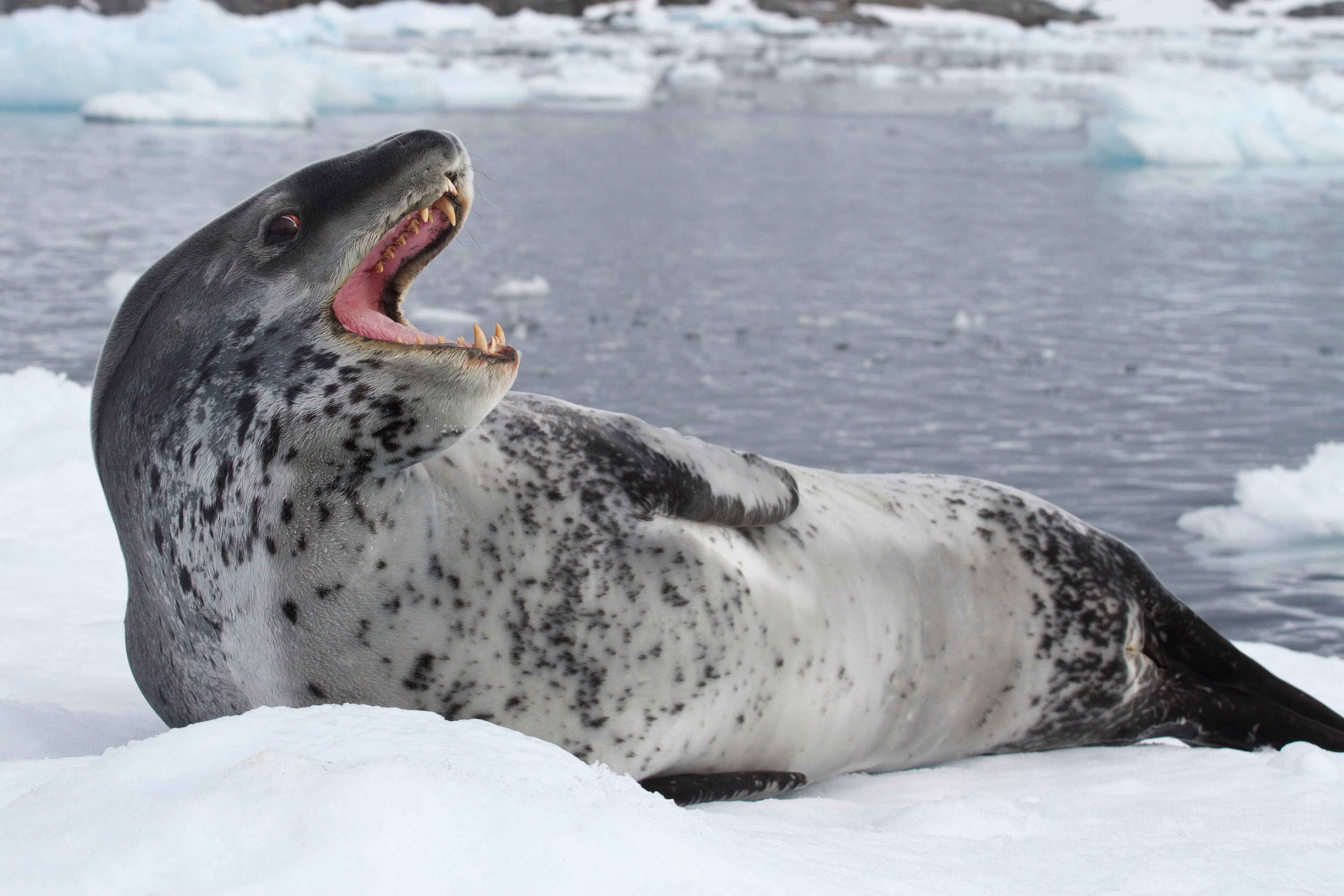Leopard seals feed on sharks, researchers discover
Scientists ‘blown away to find sharks were on the menu’

Your support helps us to tell the story
From reproductive rights to climate change to Big Tech, The Independent is on the ground when the story is developing. Whether it's investigating the financials of Elon Musk's pro-Trump PAC or producing our latest documentary, 'The A Word', which shines a light on the American women fighting for reproductive rights, we know how important it is to parse out the facts from the messaging.
At such a critical moment in US history, we need reporters on the ground. Your donation allows us to keep sending journalists to speak to both sides of the story.
The Independent is trusted by Americans across the entire political spectrum. And unlike many other quality news outlets, we choose not to lock Americans out of our reporting and analysis with paywalls. We believe quality journalism should be available to everyone, paid for by those who can afford it.
Your support makes all the difference.Leopard seals have been eating sharks, according to a study which documented the behaviour for the first time.
The study, by researchers and scientists in New Zealand and Australia, observed the diets of leopard seals by monitoring their predation and faeces.
They found signs of physical struggle with sharks on the seals’ bodies and shark remains in their faeces.
“We were blown away to find sharks were on the menu,” Krista van der Linde from LeopardSeals.org, one of the lead authors of the study, told The Guardian.
“But then we also found elephant fish and ghost sharks were also being hunted by the leopard seals.
“These fish have large spines to help protect them from predators and sure enough there were wounds on the leopard seals, sometimes even big spines embedded in their faces. One leopard seal had at least 14 such wounds.”
Leopard seals are top-end predators known to feast on a wide variety of species including crustaceans, smaller fish, birds, and other seals. Despite multiple previously global studies into their diets, there have been no earlier accounts of them eating sharks.
As part of a wider study on the diet of leopard seals in New Zealand waters, researchers recorded 39 observations of predation and studied 127 droppings samples collected between 1942 and 2019. Predation on sharks was detected in 23 per cent of observations of predation and 7 per cent of droppings.
“There could be something nutritionally about sharks that makes them desirable, [or] it could be sort of a treat,” Ms Linde said.
“A top predator feeding on another top predator is quite interesting in itself. If the leopard seals do keep increasing in the numbers and then that affects the shark populations, we really don’t know how that will affect things.”
Join our commenting forum
Join thought-provoking conversations, follow other Independent readers and see their replies
Comments